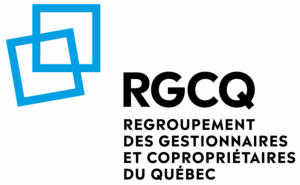Immerse yourself in the world of the co-ownership register, a central tool for orchestrating the life of a co-ownership with mastery. This register brings together all the official documents and key data that guarantee informed management and the required transparency within the building. Read on to learn about the key impact of this registry, the legal standards established since 1994, the crucial involvement of the board of directors, and the optimal strategies for successful administration. The register, a cornerstone of the co-ownership administration, meticulously archives crucial documents, ensuring clarity and compliance with the law, while safeguarding the interests of the residents concerned.
The management of the condominium unit registry ensures rigorous traceability, while compliance with Laws 16 and 141 is essential to ensure sound and transparent financial management. The custody of the register rests on the shoulders of the board of directors, which must make it available to each co-owner on request. Such accessibility promotes transparency and nurtures trust and collective understanding.
Quebec legislation reached a milestone in 1994, establishing strict guidelines for record-keeping. Before this date, vagueness reigned, complicating the defense of the rights of co-owners. The government reacted by reforming the Civil Code of Quebec, in particular through article 1070, setting out the responsibilities of unions in this area. Bills 16 and 141 have since strengthened these directives, imposing additional conditions on financial management, preventive maintenance and confidentiality.
The official registration of the union is crucial to give it legal existence. It was carried out with the Registraire des entreprises du Québec (REQ), transforming the union into a legal entity, subject to state administrative constraints. Good property management is therefore essential, especially thanks to tools such as the maintenance book for condominiums, guaranteeing the sustainability of infrastructure and real estate assets.
To register the union, you must:
- Gather essential documents such as the declaration of co-ownership.
- Submit these documents to the REQ and pay the registration fees.
- Receive the Quebec enterprise number (NEQ), attesting to successful registration.
The board of directors must appoint a guardian of the register, a member or a dedicated professional, responsible for its maintenance and legal accuracy. Although some functions may be assigned to others, the legal office remains that of the council. It is therefore important to ensure that the tasks entrusted to it are carried out properly and that the register is still compliant.
Careful constitution of the co-ownership register: what are the essential elements?
At the heart of the co-ownership, the registry is the guardian of multiple crucial documents, ensuring informed management and impeccable transparency.
Regarding administrative documents, it is important that the register is constantly updated with an exhaustive list of co-owners and tenants, including their contact details and means of contact. The register must also carefully preserve all the minutes of the meetings of the board of directors and general meetings.
As regards the declaration of co-ownership and the regulations of the building, their presence is non-negotiable in the register. Their role? Define the foundations of collective life and the imperatives of the residents. Successive updates of these documents ensure that current standards are applied.
The declaration of co-ownership, the legal cornerstone, configures the legal and administrative framework of the building, articulating the distribution of private and common spaces, as well as the prerogatives and responsibilities of the co-owners. Its archiving ensures that all actions and decisions comply with the established legal frameworks.
As for the copies of the syndicate’s contracts, they include all the formal commitments concluded with service providers and suppliers, essential for open and efficient management, explaining the commitments, costs and terms of the agreements made by the syndicate.
As for the financial documents, the register must imperatively contain the annual financial statements and the budget, offering a precise analysis of the financial situation, from income to expenses, without omitting receivables and debts, making it possible to monitor the solvency of the co-ownership.
Technical documents are not to be outdone: technical plans and specifications as well as inspection reports are essential references, while certificates of location meticulously describe the geometry and location of the property, including its easements.
Finally, the maintenance logbook rigorously documents each maintenance intervention on the building. The contingency fund study, for its part, anticipates future financial needs for the large-scale work and the renewal of the common areas, thus establishing the necessary contributions to the fund and outlining a long-term asset management plan.
The co-ownership register: an exhaustive and dynamic file
This crucial document lists the names and addresses of the owners and occupants of the premises, including additional personal data with their formal consent, such as telephone and e-mail contacts. He also meticulously compiles the minutes of the meetings, the financial statements, the resolutions adopted, the regulations of the building as well as its successive adjustments. It also contains the original declaration of co-ownership, the syndicate’s contractual agreements, the precise cadastral plan, the architectural sketches, the certificates of location, not to mention the maintenance logbook and the financial perspectives for future work. In short, it includes any information or document relating to the structure and management of the building, as stipulated by government standards.
The custody and operation of the register requires special attention. Kept in a safe and accessible location, it must be organized around a high-performance filing system to allow for the rapid location of essential documents, while ensuring maximum security against any potential loss or alteration.
Updating the registry is a guarantee of its reliability. The board of directors must scrupulously record each change, preserving the traceability of information for transparent management over time.
Access to the register is a codified right for co-owners, as set out in article 1070 of the Civil Code of Québec. They can thus examine the minutes, the financial statements and the regulations of the building. However, the confidentiality of certain information imposes restrictions. The procedures for examining the register, often specified in the declaration of co-ownership or regulations, may require supervision during the consultation, within a defined framework and at agreed times.
Finally, the confidentiality of personal data is crucial. Protection measures must be implemented to preserve the privacy of co-owners and tenants, in accordance with the Civil Code of Québec and the recent Bill 25, which strengthens the management and transparency of personal data.
Registry Access and Restrictions
The co-owners have the right to access certain documents, such as financial statements and minutes. However, this transparency is governed by measures to preserve confidentiality.
Catalogue of archives and exclusions
It is imperative to provide an inventory of the archives open for consultation. Sensitive data can be omitted to safeguard privacy.
Vigilance in the dissemination of information
The disclosure of information must be handled with caution to prevent misuse and to safeguard the privacy of individuals.
Risks of lax governance
A neglected registry can have serious legal repercussions for the union, including fines and internal disputes.
Recommendations and proactive strategy
In conclusion, it is crucial to adopt best management practices, to stay informed of legal obligations and to maintain a complete and available register. The use of dedicated software, such as Planibâtimat, can simplify document management, ensuring that the archives are accurate and up-to-date. In doing so, major legal and financial consequences are prevented and the interests of the co-owners are preserved, while facilitating the task of the directors.
The impact of new laws on condo fees
Are you thinking of embarking on the adventure of co-ownership, or perhaps you have already experienced it? The term “condominium fees” is certainly familiar to you. These expenses, which are essential and essential to the proper functioning of the building, are governed by the Civil Code of Québec, which, in its article 1064, stipulates that each co-owner has the obligation to participate financially in the general maintenance of the building.
The share of each person is calculated according to the relative value of his or her property, as defined in the declaration of co-ownership. This percentage or fraction precisely delimits the share of the costs to be borne by each owner.
But why can these fees increase? Often, this increase reflects recent legislative reforms, such as Laws 141 and 16 of 2018 and 2020. These laws, adopted with the aim of strengthening financial management, investment security and the functioning of financial institutions, have had a direct impact on the condominium sector.
These reforms were motivated by acute problems: poor financial management, underestimation of maintenance costs, and insufficient reserve funds. Bills 141 and 16 were designed to modernize outdated regulations and consolidate the position of co-owners in the face of major financial and insurance issues.
Bill 141 brought significant changes as soon as it came into force on June 13, 2018. It amended the Civil Code of Quebec in response to an alarming awareness of the shortcomings in the coverage of post-disaster repair and reconstruction costs. It has conferred on the syndicate of co-ownership the responsibility of ensuring the repair of the damage, except for the improvements made by the tenants.
It also requires the subscription of insurance at the “reconstruction value” of the building, without taking into account wear and tear, and the valuation of which must be renewed every five years. Since April 15, 2021, the syndicate must also insure its civil liability to protect the directors and other persons responsible for the management of the co-ownership. Finally, the creation of a self-insurance fund has been required since April 15, 2022.
As for Bill 16, it focused its action on the contingency fund, which is essential to prevent the costs of future work on the common elements. A large number of small and medium-sized condominiums were with no or insufficient contingency funds, resulting in precarious maintenance of the buildings. This law therefore obliges condominiums to carry out a contingency fund study and to keep an up-to-date maintenance logbook.
However, some provisions, such as those concerning the study of contingency funds, will have to be activated by a future regulation, which should see the light of day within three years of its adoption in 2024.
Bill 31, adopted in February 2024, further strengthened the management of co-ownerships by amending articles 1070.2 and 1071 of the Civil Code. These adjustments have a direct impact on the budget of condominiums: the government can now set standards for the maintenance logbook and the frequency of contingency fund studies will be adjusted according to the specificities of each building.
At the heart of the financial management of condominiums, the administrators hold the helm rigorously. Their mission, anchored in the lines of the declaration of co-ownership, includes the design, presentation and ratification of the budget. At the annual general meeting, the co-owners are consulted to discuss the provisional budget. Active monitoring of expenses is required, as is the management of reserves and funds – from contingency to self-insurance – not to mention the consultation of co-owners when it comes to budget adjustments.
Their crucial mission ensures clear and efficient management, inviting the co-owners to immerse themselves in the management of finances and to influence economic decisions.
As for large-scale projects – transformations, extensions, improvements – that go beyond the maintenance or upgrading of the common portions, the assent of the meeting of co-owners is imperative, requiring a substantial majority, as stipulated in article 1097 of the Civil Code of Quebec.
As for contingency funds, Quebec’s Act respecting divided co-ownership regulates the administration and management of these funds. These funds cover the substantial costs associated with the repair, replacement or improvement of the common elements. Article 1071 of the Civil Code of Québec prescribes the creation of a contingency fund exclusively to finance major repairs and the replacement of common portions, in accordance with cost estimates.
The syndicate, according to Article 1072 of the Civil Code, must ensure that the contribution of the co-owners to the contingency fund reaches at least 5% of their share of the common expenses. Although this provision dates back to the 1994 reform, it is frequently insufficient.
The introduction of the new legislation heralds significant changes in the management of condominium contingency funds, placing increased requirements for clarity, accountability and investment management.
Articles such as 1071 and 1072 define the standards for the constitution of the contingency fund and the establishment of the co-owners’ annual contributions to common expenses, including those allocated to the contingency fund.
The financial consequences for the co-owners are not negligible. The new laws revolutionize the calculation of common expenses when drawing up the provisional budget, causing an inevitable increase in co-ownership fees. The costs of condos have skyrocketed following these new directives.
Inflation and current real estate market conditions are also having a significant impact on the price of materials and labour, particularly in the construction and renovation sector. This inflation, which has been observable since 2021, directly affects condominium expenses.
The unions observed increases of more than 30% for services related to maintenance and major renovations between 2019 and 2021. These increases persist, confronting the condominium syndicates with a major budgetary problem for future building work.
Adjustment to impending legislation
With the arrival of 2024, condominiums will have to deal with new financial obligations. The government intends to regulate the evaluation of the contingency reserve and the keeping of the maintenance logbook, two measures that have a direct impact on the budgets allocated to both their implementation and monitoring.
A wide range of supports and support devices
For co-ownership players, a varied range of supports and devices is within their reach.
- Websites: These virtual spaces are full of articles, guides, discussion spaces, legal advice, management information and legislative news.
- Associative and professional networks: Providing seminars, e-training, publications and recommendations, they weave a network conducive to the sharing of experiences and proven practices.
- Specialized publications and podcasts: Multiple books offer in-depth expertise on the management and legislative issues of co-ownership. For example, Protégez-vous’ recent podcast, “Jules et Julie partent en condo,” sheds light on condominium living.
- Software solutions: These technological tools simplify administrative, operational, financial and legal management, allowing for expenditure tracking, maintenance, document archiving and communication with residents.
- Training and seminars: These meetings are crucial to stay abreast of developments, best practices and legislative innovations, with the help of real estate experts and condominium associations.
Leveraging these resources and devices allows condo owners and managers to refine their understanding of the responsibilities, challenges, and best practices in condo management.
Legal Expertise and Support
It is clear that we can rely on the expertise of professionals such as notaries and specialized lawyers. In addition, groups and associations offer their support.
In large condominiums, the use of a manager is often essential to relieve the directors of the multiple tasks inherent to their role. On the other hand, for small structures, hiring a manager is sometimes a deterrent, as the cost is prohibitive for a limited number of co-owners. Hence the importance of being well equipped and choosing your tools wisely.
For these smaller entities, it is essential to focus on tailor-made solutions that ensure efficient management without the need for the expensive services of specialized companies. The adoption of appropriate management software, the acquisition of legal and accounting skills specific to the co-ownership, and the support of a network of affordable experts are wise alternatives. These strategies allow for sound and dynamic management, guaranteeing the well-being of the co-owners and the added value of their assets.
When acquiring a condominium, condominium fees are a determining criterion. It is crucial not to be attracted by abnormally low fees, but rather to ensure that they correspond to a fair estimate, in order to avoid unpleasant surprises such as exceptional calls for funds.






